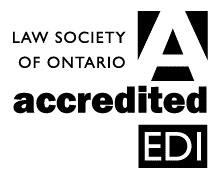Sommaire ci-dessous
le vendredi, 16 juin
9:00 - Ouverture des inscriptions
9:15 - Mots d’ouverture
9:45 - Présentation de confériencier.ère invité.e: The effect on long term memory of definite presuppositions in interrogatives with or without conditional filter in Quebec French: Consequences for legal contexts
Elizabeth Allyn Smith (Université du Québec à Montréal)
10:45 - Pause-café
11:00 - Sessions parallèles 1
- Présuppositions
- Discours de procès
12:00 - Dîner
14:00 - Sessions parallèles 2
- Preuves linguistiques
15:30 - Pause-café
15:45 - Sessions parallèles 3
- Législation en contextes multilingues
- Pratiques policières
17:15 - Présentation de confériencier.ère invité.e 2: "On the Comprehension of Interrogation Rights: Lessons Learned and Moving Forward"
Kirk Luther (Carleton University)
18:15 - Réception
le samedi, 17 juin
9:00 - Ouverture des inscriptions
9:15 - Présentation de confériencier.ère invité.e 3: "Linguistic Equity in The Digital Society"
Janny Leung (Wilfrid Laurier University)
10:15 - Pause-café
10:30 - Sessions parallèles 4
- Liberté académique
- Sujets marginalisés
12:00 - Dîner
13:00 - Session d’affiches
14:00 - Sessions parallèles 5
- Interprétation et traduction
- Violences sexuelles
15:30 - Pause-café
15:45 - Présentation de confériencier.ère invité.e 4: "But We’re All Speaking English!"
Lorna Fadden (BC First Nations Justice Council, BC)

Ce programme contient 1 heure de professionnalisme EDI
le dimanche, 18 juin
9:00 - Présentation de confériencier.ère invité.e 5: "Five Linguistic Methods for Revitalizing Indigenous Laws"
Naiomi Metallic (Dalhousie University)
10:00 - Pause-café
10:10 - Panel de discussion
11:25 - Mots de fermeture
Détails des sessions
Sessions parallèles 1
Présuppositions
- "Suggestibility to false information presented with a presupposition"
Eleanor Miller (Université Libre de Bruxelles) - "Les présuppositions encore et aussi dans le témoignage au tribunal"
Khokha Fahloune (Université du Québec à Montréal)
Discours de procès
- "Adversarialism and discursive practices in county and family courts"
Tatiana Grieshofer (Birmingham City University) - "Courtroom Language in Canada"
Nancy S. Marder (Chicago-Kent College of Law, Illinois Institute of Technology)
Sessions parallèles 2
Preuves linguistiques
- "Of Glitter and Boogaloo: Coded Language in Far-Right Movements in the United States"
Rey Romero (University of Houston-Downtown) - "Acoustic-prosodic and perceptual analysis of deception in 911 emergency calls: preliminary observations"
Julien Plante-Hébert & Pr. Lucie Ménard (Université Québec à Montréal) - "Same or different? Going beneath the surface in trademark linguistics"
Shana Poplack (University of Ottawa)
Sessions parallèles 3
Législation en contextes multilingues
- "L’égalité des langues officielles au Canada : de la nécessaire reconnaissance de l’authenticité des deux versions des jugements dans la Loi sur les langues officielles"
Louis Beaudouin (Services linguistiques universels/Universal Linguistic Services) - "Inuit Language(s): Interpreting official language legislation in Nunavut"
Griffin Cahill (York University) - "The interpretation of multilingual laws in Canada and the European court of justice: A Comparison"
Lawrence Solan (Brooklyn Law School)
Pratiques policières
- "Explaining genre variability in Canadian police reports: Competing orientations to multiple audiences and functions"
Dakota Wing (York University) - "From Witness to Suspect. Questioning Types in the Police Interviews of Jennifer Pan"
Sophie Hambleton (York University)
Sessions parallèles 4
Liberté académique
How does academic freedom intersect with freedom from discrimination in Canadian higher education? This panel presents the preliminary analytical explorations from our project which investigates the debates around academic freedom and free speech in Canadian academic institutions in relation to specific faculty and student experiences of discrimination. The three presentations are our early forays into the harms of language of both intramural and extramural speech and the implications of legislation that seeks to regulate speech.
Eve Haque, Mandy Lau, Laura McKinley, Monika Lemke, Stephanie Latella (York University)
- "Feeling academic on Twitter? Extramural speech, outrage, and the limits of language law reform"
- "The regulation of academic freedom in Quebec in comparative perspective: intramural speech, provincial governance, and the harms of language"
- "Racist Speech Acts Crossing Borders and Languages"
Sujets marginalisés
- "Counsel Rhetorical Strategies as Jurisgenerative Practices in Criminal Jury Trials involving Settler Defendants and Indigenous Victims"
Scott Franks (Lincoln Alexander School of Law) - "Requesting and Expressing Remorse: An Analysis of Speech Acts and Stance in Indigenous Parole Board Hearings"
Tammy Gales (Hofstra University) - "Sin of Omission"
Hilary Evans Cameron (Lincoln Alexander School of Law, Toronto Metropolitan University)
Sessions parallèles 5
Interprétation et traduction
- "Interpreting for jurors – safeguarding or compromising the defendant’s right to a fair trial?"
Eva N. S. Ng (University of Hong Kong) - "Court interpretation: post-pandemic traps and pitfalls in online courtrooms"
Magda Stroinska & Daniel Pape (McMaster University) - "Dialogues Between Jurilinguism And Juritraductology – An Analysis Of The Canadian, European And Brazilian Approaches Towards The Translation Of Law And The Right To Translation"
Camila Vasconcelos Leitão Moreira (Federal University Of Paraiba – Brazil)
Violences sexuelles
- "Consent in Context"
Seran Gee (Unaffiliated) - "Institutional empathy in transitional justice proceedings: The potential for healing through personal narratives of wartime sexual trauma at the International Criminal Court"
Ana-Maria Jerca (York University) - "How do we speak about sexual assaults? Analysis of Media Coverage in the #MeToo Era"
Alexandra Dupuy (Université de Montréal), Marianne Laplante (York University), and Charlène Nault (Université Québec à Montréal)
Session d'affiches
- "'If I can't have them no one will.' Examining Incel Ideology Through Negation in a Spree Killer's Manifesto"
Andrew Ferley (York University) - "Miscommunication in testimonies by L2 English speakers in an English-speaking legal context"
Amanda Gooden (York University) - "Coercion and Resistance: Exploring Witness Testimony for Narrative Construction & De-Construction Using Question-Types"
Irina Levit (York University) - "The “non-native” speakers’ challenges to sound credible before the law"
Ariana Mohammadi (Linguistics Consultancy Center of Canada) - "Investigating the Linguistic Features of Blame Avoidance: The Case of Galen Weston Jr."
Kamala Muthukumarasamy (York University) - "Literature as a Language of Law and History: a Non-Colonial Approach to Legal History"
Ọláolúwa Òní (York University) - "The Courts Role in Upholding Language Rights in Canada: A Socio-Judicial Approach"
Ari Niki-Tobi (A.T.Socio-Judicial Consulting) - "Powerless Speech and Race in Court"
Yifan Wu (York University)
Étudiant•e•s de premier cycle du cours LING2450 Language and The Law
